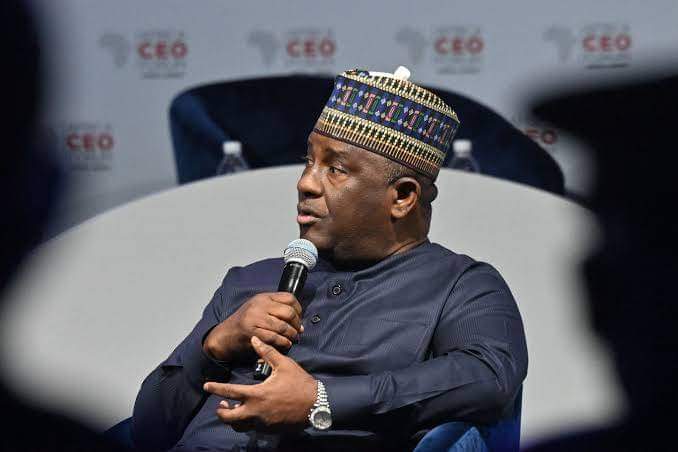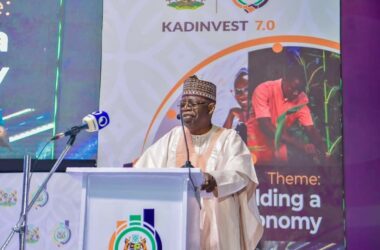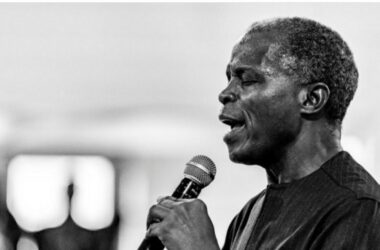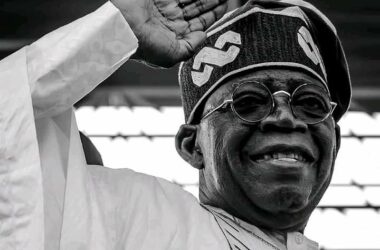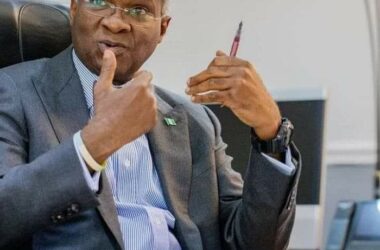There is no denying the fact that the Nigerian business environment is a highly challenging one. Also incontestable is the fact that the country’s ease of doing business profile is hardly where it ought to be – even as reforms are underway to make it more friendly to both local and foreign investors.
But this less-than-ideal state of affairs has not stopped the more intrepid and self-assured of investors from striding confidently into terrains where the proverbial angels fear to tread. Not only have they survived to tell the story, but they have thrived and achieved tangible growth in the face of seemingly insurmountable obstacles – and even outright opposition. And not only have they thrived, they – and the organizations they have built, nurtured and sustained over the years – have had a tremendous positive impact on the profile and fortunes of the larger Nigerian economy; they have added value to (and indeed redefined) their sector(s) and industries; created jobs, and given back to the society in more ways than one.
Dr. Abdulsamad Isyaku Rabiu, CFR, CON, is one such person.
One of Nigeria’s – nay, Africa’s – foremost investors and industrialists, Rabiu is the Founder and Executive Chairman of BUA Group (a Nigerian conglomerate that specializes in manufacturing, infrastructure and agriculture). BUA Group is today one of the most diversified multi-sector corporate organisations in Nigeria; it is a leading player in such key sectors as food (e.g. sugar and edible oil) as well as infrastructure (e.g. cement, ports and port terminals, and real estate). The BUA Group, which began as an importer of the sugar, edible and cement, eventually metamorphosed into a major refiner of sugar and a manufacturer of cement, as well as having substantial interests in real estate, iron and steel, and agriculture. Over the years, the conglomerate has consistently recorded annual revenues in excess of $2.5 billion.
A versatile and adventurous business leader with an uncanny eye for opportunities and an appetite for calculated risks, Rabiu has, at various times during his eventful business career, held important positions such as Chairman of the Nigerian Bank of Industry (BOI), and Chairman of the French-Nigeria Business Council, among others. He is also the proud recipient of the national honours of Commander of the Federal Republic, and Commander of the Order of the Niger – the latter award being conferred on him in October 2022 by President Muhammadu Buhari, GCFR.
Beyond his official designations, however, Dr. Rabiu has built up a formidable and well-deserved reputation (not just in the respective industries in which his companies operate, or even in the larger Nigerian and global business communities, but also in the public imagination), as a strategic leader of no mean pedigree. His knowledge of the peculiarities of the Nigerian business environment, his understanding of international business norms and practices and what it takes to compete successfully in the 21st century global marketplace of goods, services, information and ideas, and the sheer scope of his vision – not just for his range of businesses and the sectors in which they operate, but also for Nigeria’s economic fortunes in the short, medium and long term – have marked him out as a colossus among his peers.
But who, really, is Abdulsamad Ishyaku Rabiu? What are the influences that have shaped him into the internationally-respected business titan and much-sought-after thought-leader he is today?
Born on the 4th of August, 1960 in Kano (in what is now Kano State, northwestern Nigeria), Abdulsamad Rabiu is one of the many offspring of the renowned business titan, Khalifah Ishyaku Rabiu (now of blessed memory), who was himself one of Nigeria’s foremost industrialists in the 1970s and 1980s.
He spent much of his early life, and had his early education, in Kano – an academic career which saw him completing his post-primary education at the Federal Government College in Kano, whereupon he proceeded to the United States of America to study Economics at Capital University in Columbus, in the state of Ohio. Upon completion of his studies there, he returned to Nigeria, while in his mid-20s, to oversee the family business. It was at this time that he obtained a first-hand experience, and learned a number of salutary lessons, about the vicissitudes of doing business in Nigeria – courtesy of his father’s travails at the hands of the military government in power at the time.
Having cut his teeth under his father’s tutelage, the young Abdulsamad Rabiu set up his own company, BUA International Limited, in 1988. The objective of this company was chiefly to trade in commodities which were obviously in high demand among the diverse range of consumers in Nigeria – such as rice, sugar, edible oil, flour, chemicals, and iron and steel.
From its early days, BUA Group has collaborated with other companies, as well as with both the national and subnational governments, on various undertakings which have seen to the revival of previously ailing and loss-making corporate entities. One of these companies is Delta Steel Company, for which BUA Group was contracted by government in 1990 to supply raw materials in exchange for finished products. Another is the Nigerian Oil Mills Limited, the largest edible oil processing company in the country, which BUA Group eventually acquired in 2005. Since then, BUA has constructed flour-milling plants, notably in Lagos and Kano.
But by far the most notable of the company’s business strides is in the sugar and cement industries, in which the BUA Group broke the long-standing monopoly of the Nigerian market for these products enjoyed by a leading competitor. Through a combination of doggedness and mental dexterity, Rabiu defied the determination and adversarial actions of this competitor aimed at driving his company from the Nigerian marketplace, and in the process commissioned factories, refineries and terminals to produce and export these items. Not only that, BUA Group went on to acquire a controlling stake in a publicly-listed cement company in Northern Nigeria, as well as constructing a $900m cement plant in Edo State, which was completed in early 2015.
It comes as no surprise, therefore, that Rabiu’s entrepreneurial acumen, which has seen BUA Group juggle an increasingly diverse investment portfolio with seamless energy based on unparalleled expertise and experience, has endowed him with a personal fortune that is simply the stuff of dreams. In July 2020, the influential business magazine, Forbes, estimated Dr. Rabiu’s wealth at $3.2 billion, making him the 716th richest person on the planet, and only the second richest man in Nigeria. As recently as January 2023, the aforementioned Forbes magazine made a drastic upward re-evaluationg of his vast wealth, estimating his net worth in excess of $8bn, a figure which, the magazine said, puts him at No. 4 on Africa’s rich list.
Not bad for a man who was forced to recourse to his own father in order to obtain land for his first major construction venture! Indeed, the success of Dr. Abdulsamad Ishyaku Rabiu and his BUA Group cannot, by any stretch of the imagination, be attributed to luck or any combination of favorable circumstances – even with his privileged family background. On the contrary, he has had to confront and surmount a plethora of challenges and threats that would have demoralized and driven a less determined soul away from the cut-throat world of business. Not least of these challenges was the sustained opposition (and the rather ingenious machinations) of an implacable competitor who was hell-bent on preserving its monopoly of the Nigerian market for cement and sugar in perpetuity. Aided and abetted by an often compromised bureaucracy, this competitor placed every imaginable obstacle in the path of Rabiu and his company, and for years continued to dog his steps at each stage of his remarkable entrepreneurial journey.
Given the complex and dynamic nature of the Nigerian business environment, how was Dr. Abdulsamad Ishyaku Rabiu able to surmount these challenges and maximize the opportunities that came his way – to the point where, today, he is regarded in many influential circles across the globe as a veritable reference-point in strategic business leadership?
One of the many attributes that have been ascribed to him is the clarity of his vision, and his ability, not only to act decisively on the various dimensions of this vision, but also his ability to communicate it effectively to his team of associates, colleagues and partners in a manner that secures their willing and ready buy-in, as they see a seamless alignment between their individual and collective interests and aspirations with the overarching vision he has articulated to them.
Another attribute is his ability to anticipate future trends and to devise a system and game-plan to meet the requirements for making the most of them. The BUA Group helmsman demonstrated this trait time and again as a combination of demographic shifts, changing cultural and consumption patterns, and, again, the shenanigans of a formidable competitor, forced his organisation to adapt with an almost-feline nimbleness. No matter how drastic the change – whether in the form of an official policy, a disruptive new technology, or a prevailing set of circumstances – Rabiu and the BUA Group have always landed on their feet! For this organisation, failure (or giving up in the middle of a given assignment or objective) is not an option.
Dr. Rabiu is also known for inculcating a culture of innovation into the business model of BUA; indeed the spirit of innovation is embedded in the company’s DNA. Thanks to his personal eagerness to try new things, and to change from an already established course if need be, the conglomerate is not averse to new ideas, no matter how outlandish it may seem at first, but which in the long run, always prove to be the key to the organisation’s next stage of growth.
This intellectual flexibility – and Dr. Rabiu’s ability to see opportunities long before they become apparent to others – does not, however, detract from his preference for hard, verifiable data as a basis for his decision-making and a yardstick for measuring progress. For example, his decision to make the transition from importer to manufacturer and exporter of sugar and cement; his decision to build port terminals to house his factories and refineries; the actions (and risks) he took to challenge a competition’s long-standing and well-entrenched monopoly of the market; his acquisition of a ‘floating’ terminal for his cement factory, and so forth, all these were based on extant information and data regarding the state of play at the time.
Dr. Rabiu clearly understands the need on the part of a strategic leader to take personal responsibility for his actions and their consequences, for good or for ill. This is a trait he has successfully inculcated into the work ecosystem at the BUA Group. Today, a culture of corporate responsibility permeates the system, with a workforce that has been variously empowered to exercise initiative and to make independent decisions, in the full knowledge that these decisions are motivated solely by the ultimate good of the ecosystem.
Added to this is the spirit of continuous learning which has also become part of the BUA work culture. It has bred in the company’s personnel, from the Executive Chairman himself, through senior management down to the factory floor, a keen and in-depth knowledge of their local environment; a desire to constantly add value to their work (no matter how lowly that work may be); and an obvious pleasure in the work they do and the processes they carry through – thanks to their understanding that they matter, and that they have a stake in all possible outcomes.
Somebody once said that great privilege also imposes a great burden – especially on people saddled with an active social conscience that would not let them rest easy in the face of social and economic inequality and deprivation. For Dr. Abdulsamad Ishyaku Rabiu, there is no greater pleasure, no more gratifying activity, than giving back to society out of the great fortune he has been blessed with. A commited social entrepreneur who literally puts his money where his mouth (and heart) are, he uses the instrumentality of his foundation, the Abdulsamad Rabiu Africa Development Initiative, and the BUA Foundation to structure his philanthropic activities, such as the $100m Africa Fund for Sustainable Development and Renewal, which he launched a few years back. Other examples of his social investment include the construction of a 7,000-square-meter paediatric ward at the Aminu Kano Teaching Hospital, Kano, and that of the Centre for Islamic Studies at the Bayero University, Kano, amongst several others.
A dedicated family man, Dr. Rabiu is married with children. He also has dozens of siblings, many of whom are also high flyers in various walks of life.
Not one to rest on his oars in spite of a rich and full life laden with accomplishments and a colades, Dr. Abdulsamad Ishyaku Rabiu, CFR, CON continues to carry forward an unstoppable momentum of investment and charitable deeds, with the perseverance and dignity that has been the hallmark of his success till date. He continues to uphold the fast-disappearing traditions of hardwork, business, scholarship and charitable work. A bona fide member of the world’s most exclusive club of billionaires, his compassion and concern for the weakest citizens in our society has established him as a champion of the poor and the marginalized, whose giant business strides and charitable efforts continue to inspire his fellow citizens, and to give his country, Nigeria a good name across the globe.


